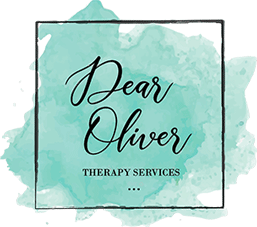FAQ'S
-
How do I know which therapy is right for me?
Different therapeutic styles work for different people, depending on the issues they need to work through and their individual characteristics. It is a good idea to have a conversation with your therapist about this. Animal-assisted therapy is more suited for children and adults who are motivated by dogs and who are overwhelmed by the therapeutic process and its demands (especially for children).
-
What major styles of therapy do you use?
Both our therapists are trained and conduct Animal Assisted Therapy and regular therapy sessions. They primarily use a client-centered approach in therapy interspersed with multiple different techniques from different therapeutic schools of thought. They are also trained in Rational Emotive Behavioural Therapy (REBT), Transactional Analysis (TA), Gestalt work, and Integrated Somatic Psychology (ISP).
-
What happens in a therapy session, AAT or otherwise?
Each session, be it regular therapy or AAT is primarily centered around talk therapy Therapy is a two-way process with the therapist and the client working on goals that are pre-decided and for the client’s benefit. The therapist helps create a safe, non-judgemental space for the client, while the client opens up and talks about their concerns and acts upon mutually decided steps.
-
Is this the right space for career counseling?
No, our therapists are not trained career counsellors.
-
What kind of issues can I deal with in therapy?
Issues in therapy can be but are not limited to dealing with a mental illness, anxiety, relationship issues, gender and sexuality based concerns, trauma, childhood emotional neglect, parenting, issues related to peers and parents, adjustment issues, pressures of academia, grief, anger and emotional issues. Please check with your therapist if they are adept at dealing with your issues before you start therapy.
All of the above mentioned issues can also be addressed by using AAT. In addition AAT has shown exceptionally good results with individuals with special educational or additional needs like Autism Spectrum Disorder, Attention Deficit Hyperactivity Disorder/ Attention Deficit Disorder, Downs Syndrome, Cerebral Palsy etc.
-
How long does therapy take?
Therapy is an investment in yourself and while we may want immediate results, it takes time. It is not a linear process. The duration of therapy depends on the severity of the issue and the level of consistency and effort put in by the client.
-
What if I just want to play with dogs?
As much fun as this sounds , unfortunately we are not the right space for this. Each AAT session has a trained therapist and therapy dog working towards achieving specific goals. However we do meet and greet sessions and workshops. Feel free to reach out for more details.
-
What kind of therapy animals do you use?
We primarily work with specially trained therapy dogs. A trained therapy dog is one that has passed a temperament test, with specific criteria, and enjoys interacting with various kinds of populations. At Dear Oliver Therapy Services all the animals undergo a test to check if they meet the criteria. They get registered with us only if they pass the test. All our therapy pets are above ten months of age.
-
What is the difference between a therapy animal, service animal & an emotional support animal?
Service animals: They are trained to aid or assist an individual with a disability. The task that the dog performs is directly related to the person’s disability.These include guide dogs for the blind; hearing dogs that alert their owners to sounds; mobility assistance dogs, which may pull a wheelchair or directly support a person; seizure alert dogs; and others.
Emotional support animals: ESA or companion animals provide comfort to certain individuals who may be suffering from emotional or physical illness daily. They need not have specialized training.
Therapy animal: Therapy animals are trained to provide affection, comfort and support to various populations. They have basic obedience training as well specialized therapy dog training. They are comfortable being around large and varied groups of people for a longer time. They work with their handlers to provide services to people with developmental disorders, psychiatric disorders, physical disabilities, physical illnesses and behavioral / emotional problems.
-
Can I come for an AAT session if I’m scared of dogs?
Yes absolutely! AAT is very effective with animal phobias. As long as the client is motivated to work on the fear and comes willingly there is a high chance of success.
-
How can I get in touch to organise a workshop for my organisation/individually?
Each workshop is specially curated keeping the individual or organisational needs in mind. We do workshops both with and without therapy animals.You could fill out the contact form.
-
Do your courses offer a practical aspect?
Yes we aim to offer an all round training. The course is created in such a way that a person completing all requirements of the course will get the chance to observe AAT sessions.
-
Can I become an Animal Assisted Therapist if I am not trained in psychology?
No. You could however check out our course on Animal-assisted activities
-
Where can I find more information about when the next support group will be?
You could fill out the contact form. We also make regular announcements on our Instagram page
